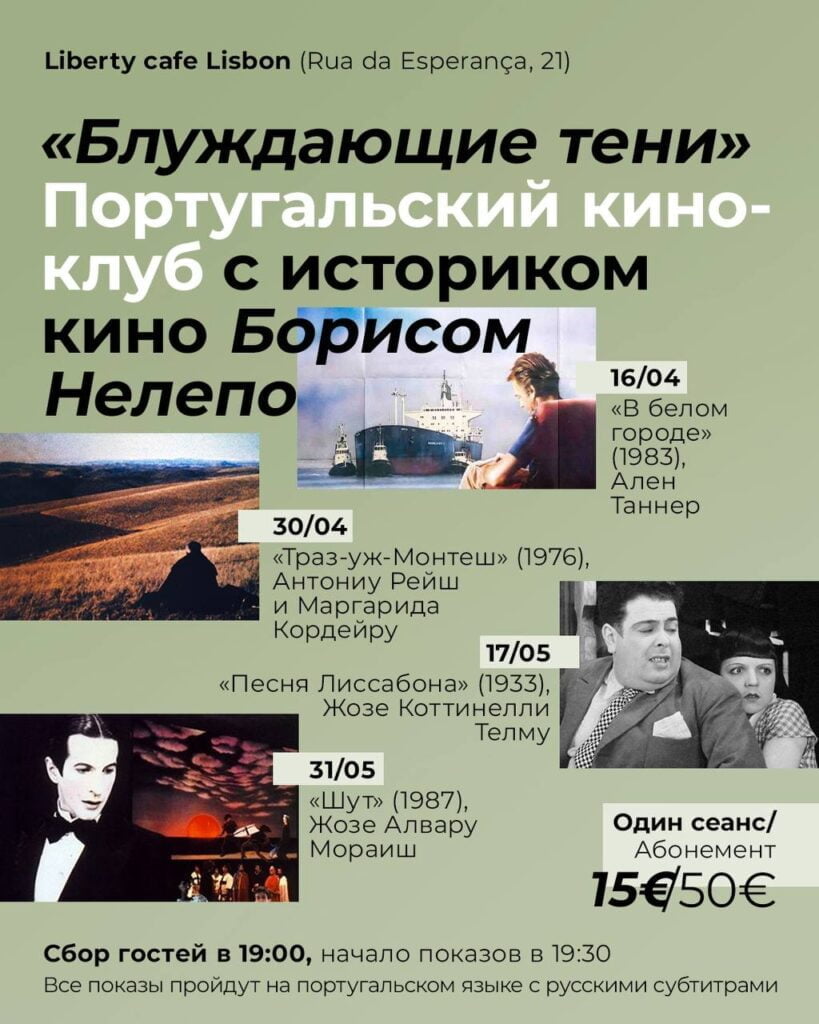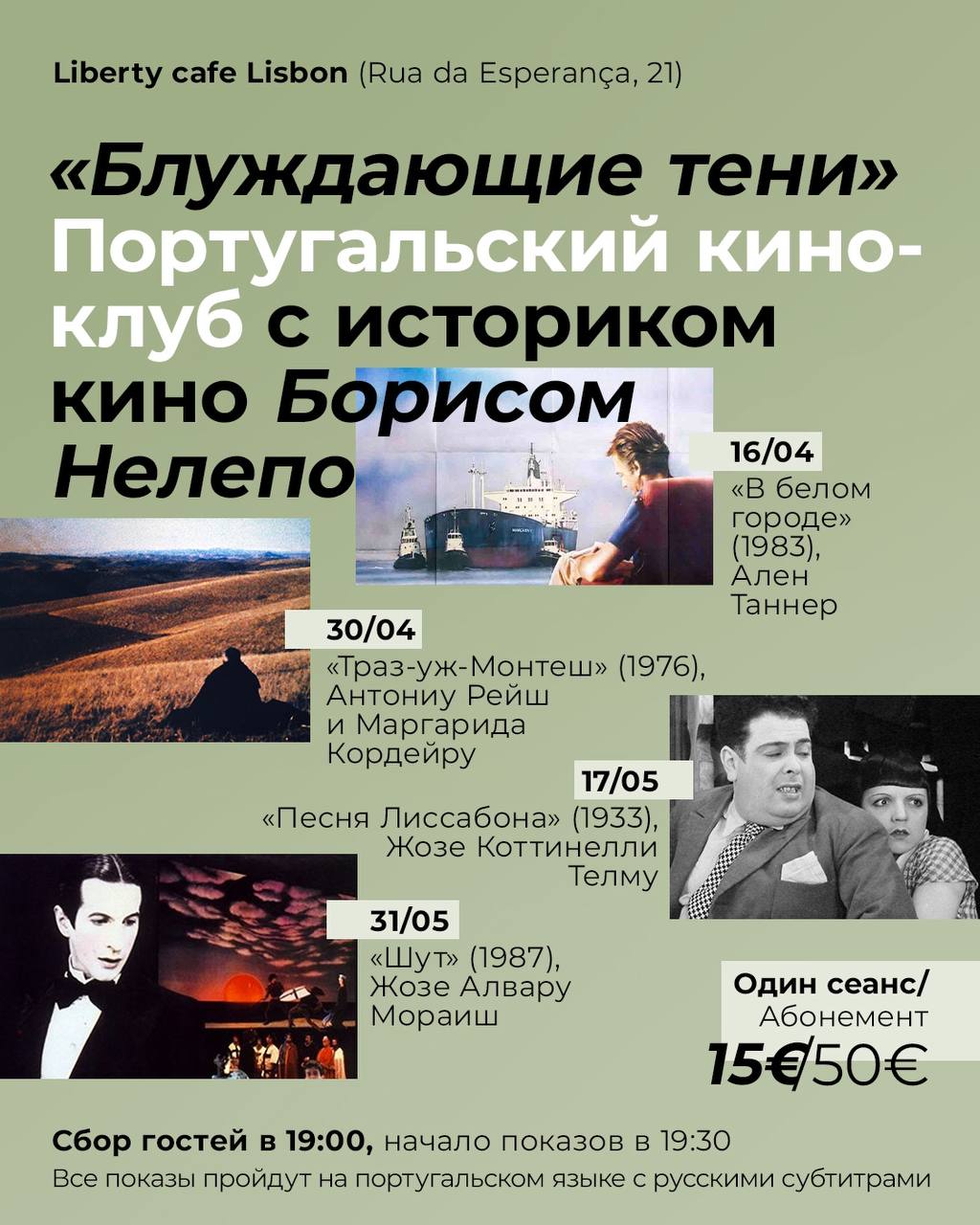
English below
Мы продолжаем показы нашего португальского киноклуба «Блуждающие тени» с историком кино Борисом Нелепо! Новый цикл показов с обсуждениями и короткими лекциями снова включает четыре картины.
Наше путешествие начнётся с фильма швейцарца Алена Таннера «В белом городе» (1983), показывающего Лиссабон с точки зрения – столь близкой многим из нас сейчас – иностранца, фланёра, человека, только знакомящегося с городом.
Продолжим просмотром редчайшего шедевра антропологического и в то же время поэтического кинематографа – «Траз-уж-Монтеш» (1976) Антониу Рейша и Маргариды Кордейру, посвященного одноименному региону.
Затем снова вернёмся в столицу с музыкальной комедией «Песня Лиссабона» (1933) – первой звуковой португальской лентой.
Наконец, завершим сезон киноклуба барочным «Шутом» (1987) Жозе Алвару Мораиша – политической аллегорией о разочаровании и потерянности после Революции гвоздик. Мы снова обращаемся к разным временным периодам, жанрам и стилям, чтобы лучше понять португальскую культуру.
We continue screenings of our Portuguese film club “Drifting Shadows” with film historian Boris Nelepo! The new series of screenings with discussions and short lectures again includes four films.
Our journey will begin with Swiss Alain Tanner’s “In the White City” (1983), showing Lisbon from the point of view – so close to many of us now – of a foreigner, a flâneur, a person just getting to know the city.
Let’s continue watching the rarest masterpiece of anthropological and at the same time poetic cinema – “Traz-os-Montes” (1976) by António Reis and Margarida Cordeiro, dedicated to the region of the same name.
Then we return to the capital again with the musical comedy “The Song of Lisbon” (1933), the first Portuguese sound tape.
Finally, let’s close the film club season with the baroque “Jester” (1987) by José Alvaro Morais, a political allegory about the disillusionment and loss after the Carnation Revolution. We again turn to different time periods, genres and styles to better understand the Portuguese culture.
